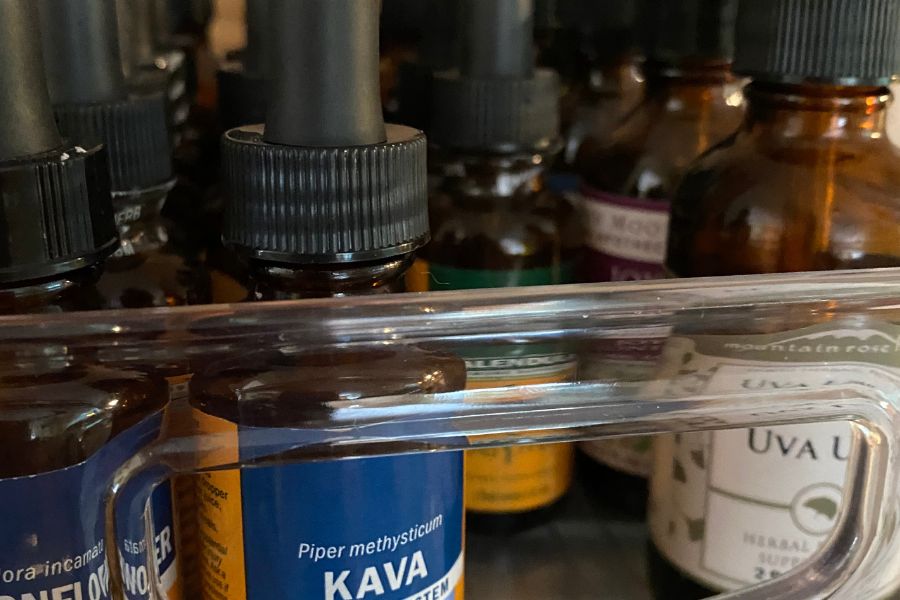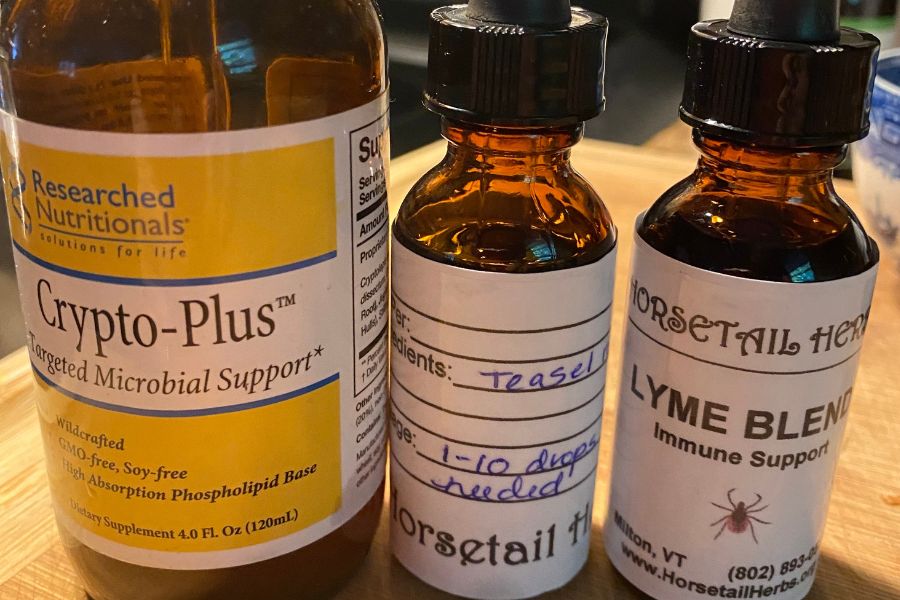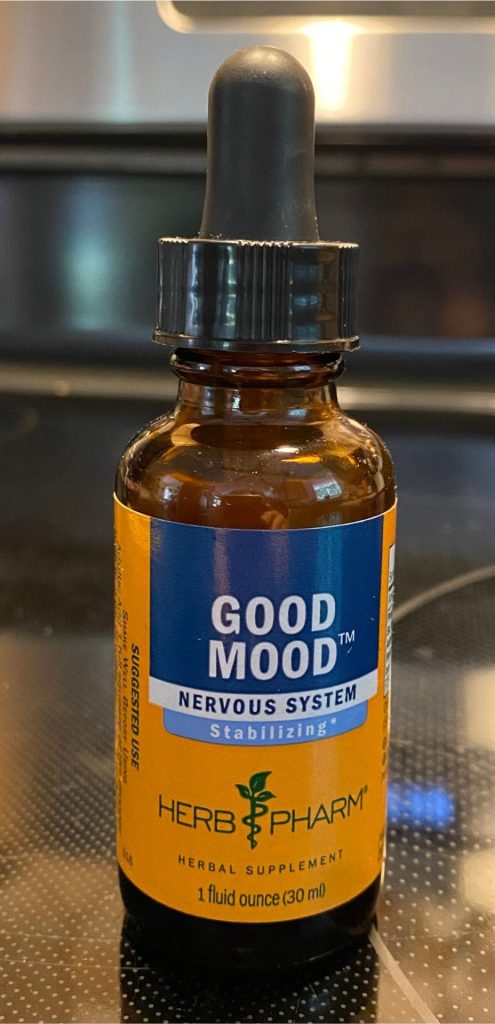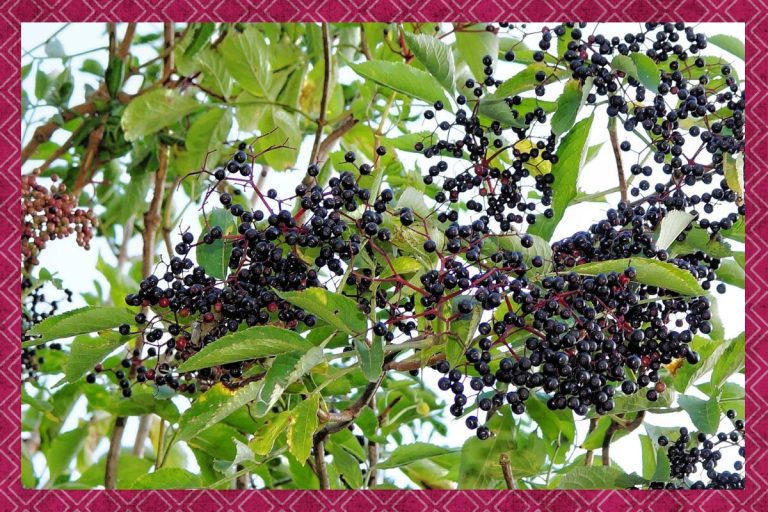Working With Herbal Tinctures
This post may contain affiliate links. View our disclosure policy here.
Working with herbs is my favorite way to make sure my body is taking in nutrients as well as the natural medicine it needs to fight inflammation and illness. I didn’t grow up working with herbs though and I never heard of a tincture. So this post is for those of you like me a number of years ago. I wanted desperately to learn and work with natural ingredients for health but didn’t know where to start! While I have covered a bit on teas in former posts, today let’s talk about working with herbal tinctures.
Working With Herbs
For anyone that has been reading posts here at My Wellness Basket, you know I’m all about holistic health. I started this journey years ago when my family threw out all artificial ingredients from our diet and started learning more about holistic and natural medicines. It wasn’t until 2020 though that I really became invested in herbs. That year, I started out with a class on the immune system (and herbs) through an online class at Commonwealth Holistic Herbalism. I fell in love with herbs.
I still consider myself a student herbalist. I’ve not completed the coursework and I still need to review constantly to remember all of the wonderful things I’m learning. So I will always tell you information I am learning but also advise seeking a professional herbalist for more in depth knowledge or a personal consultation.
My favorite way to work with herbs are through tea. If you check out my herb of the month posts, you will see most of them – like this one on Tulsi- contain some simple recipes for making herbal tea. My second favorite way and often the easiest way to get in extra, more specific herbs, is with herbal tinctures.
What is a Tincture Used For?
There’s a enormous variety of health needs that herbal tinctures can be used for. A few of those needs include headaches and other pain, colds and viruses, cough, digestive issues including heartburn and indigestion, nervous system support, nutritional support, and more. Tinctures are an important part of working with herbal medicine because of their potency, long shelf life and very easy to store or take along with you wherever you go!
Who Can Take Herbal Tinctures?
Depending on the particular tincture, anyone can take an herbal tincture. Like any food or medicine, there are unique features that make some safer or more beneficial depending on the person. But with the right knowledge and guidance, anyone from infancy through old age can benefit from the right herbal medicine, including tinctures. If you are, however, treating an infant or young child, are someone with a medical condition or are taking pharmaceutical medications, I would highly recommend that you seek the advisement of a professional herbalist, naturopath or functional medicine doctor before working with herbal tinctures. And always, no matter who is advising you, read and study all that you can about the medicines you work with. Always.
How Do I Take Herbal Tinctures?

An herbal tincture is taken by mouth. Generally it is best to drop the liquid into your mouth under the tongue and then swallow. The tincture can be taken pretty much any time of day, but read the directions on the bottle. Most will direct you to take it several times trhoughout the day. Most of the time I take a tincture straight from the dropper. However some tinctures are more bitter or not so pleasant to taste or has a stronger alcohol taste and these I will drop into just a few teaspoons of water or juice. For my son, who is pickier about taste, I will sometimes put in a glass of up to 8 oz. of juice.
There are many companies and herbalists that sell tinctures. Each vary in the directions they give dependent on the herb or blend of herbs and how they are made (with an alcohol solvent or glycerin, etc.) and who is taking it. At Earthley, children are generally directed to take 1-5 drops while adults generally take 5-20. Many herbalists will also recommend doses of 1-4 dropperfuls, 3-5 times a day. Always read the instructions. Always read more about the herbs you are working with so that you know all of it’s benefits and how it affects the human body. It would be wise to get to know an herbalist or find resources where you can ask questions when you are not sure.
Do I need a special bottle and dropper?
When you purchase a tincture, they generally come in a brown bottle with a dropper. The brown glass helps protect the tincture from the light. It’s not absolutely necessary. However, when making your own, if you keep your tincture in a clear glass bottle, you should be extra cautious to store it in a dark spot such as a closed cupboard or closet. Also, if you don’t have a dropper, you can always measure the tincture with teaspoons. One dropper is generally equal to about 1/4 teaspoon. I find the droppers easier but make do with what you have.
How Do I Make My Own Tincture?
In general, you will fill a mason jar about 3/4 full of the herbs you wish to tincture, adding alcohol to fill the jar. Allow the herb to macerate in the bottle, shaking daily, for approximately 4 weeks. Keep it in a cool dark pace during this process. Once finished, strain the liquid into a colored glass bottle and be sure to label it with the herb, alcohol used and the date! This is a really basic set of directions. What herb you are working with, whether it’s leaves or a root, etc. could change some of the details. So be sure to read up on the process before starting your own.
My strongest suggestion is to watch some videos on how this is made and purchase a good herbl medicine book with instructions. My favorite source is the book written by my instructors at Commonwealth Holistic Herbalism – Herbal Medicine For Beginners.
Here’s a great video to start with: Rosemary Gladstar – How to Make an Echinacea Tincture. Rosemary Gladstar is very well known and respected among herbalists!
Thus far I have made my own Ashwagandha, ground ivy, goldenrod, and dandelion root tinctures. They were very easy to make and I plan on expanding those soon!
I Want To Learn More! What Should I Do?
Let me share some resources with you!
Herbal Medicine For Beginners – again, this is my FAVORITE herbal medicine book. It’s an easy read, full of information, directions on how to make your own herbal medicine including tinctures, teas, infusions, and more as well as great tea recipes! Of course I recommend the printed book for the recipes, but it is available on Audible.
Earthley Wellness has a free downloadable packet on how to use herbal tinctures in addition to their vast assortment of tinctures they offer on the website for sale. The Pain Potion is very popular and I’m trying out the Nourish Me Naturally as I write this! They have lots I would like to try soon.
Herbal Recipes For Vibrant Health – while this book isn’t specific to tinctures, Rosemary Gladstar does give directions in the back of the book on how to make general tinctures and the rest of the book is full of information on herbs and making an assortment of natural remedies including teas, tonics, oils, salves, and tinctures.
The Commonwealth Holistic Herbalism school has not only classes you can take online, but also a Youtube channel and Podcast. Anyone who signs up for their courses can also take part in a skype type chat once a week with the instructors and other students where you can learn quite the assortment of information and ask questions!
MyWellnessBasket.Net – Here’s a little self-plug! Herbalism is a big part of my world and blog, so if you are new here (or just haven’t read much yet), browse the blog. I do have a number of posts on herbs and will continue to write more! Be sure to check out posts on chamomile, rose, tulsi, and more!

In Summary

I hope this has brought you a little introduction to working with herbal tinctures and has you ready to try some! Tinctures really are a great way to work with herbs and are often a great alternative to pharmaceuticals. You can purchase some through Amazon such as the Herb Pharm brand or take a look at Earthley. You can also make your own. Just be sure to read and learn about the herbs you choose to work with and have resources available should you have any questions! Have fun working with herbs!








Thank you for this post! I have been wanting to get into tinctures but I am completely new to this. Definitely saving this article for later.
Thanks for stopping by. Honestly, next to a simple herbal tea this is a really easy way to get into herbs! Come back and let me know what you try!
Calendula tincture is my favorite. It helps both when the sick and coughing season begins, and takes care of the health of the oral cavity. I don’t make the tincture myself, but I buy it. My grandmother worked in a pharmacy as a pharmacist – then she prepared various medicines, powders, tinctures.
That’s great that your grandmother kept her awareness of herbs even though she worked with conventional medicines. I do love calendula! Make sure to check out the post ! https://mywellnessbasket.net/herb-if-the-month-calendula/ I didn’t know about the oral health. Interesting! I’ll have to do some more reading on that for sure!